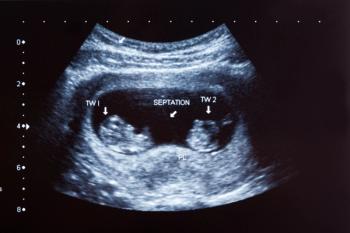
Dig into the latest research exposing the hidden dangers of recurrent severe maternal morbidity in subsequent pregnancies.


Dig into the latest research exposing the hidden dangers of recurrent severe maternal morbidity in subsequent pregnancies.

Discover how Missouri's extended Medicaid and CHIP coverage for new mothers, in alignment with the Biden-Harris Maternal Health Blueprint, addresses rising maternal mortality rates and provides essential support during the postpartum period.

A recent study indicates that early use of intrauterine balloon tamponade does not significantly reduce severe postpartum hemorrhage risk compared to its application after second-line uterotonic treatment failure.

Discover key findings from a recent study suggesting increased risks with ampicillin treatment for intrapartum fever, emphasizing the importance of considering ampicillin and gentamicin for comprehensive management of clinical chorioamnionitis during childbirth.

A recent study revealed that women with endometriosis not only face a mean delay of 7 to 11 years in diagnosis but also suffer from increased menstrual, mental health, and other pain symptoms, impacting their overall well-being and quality of life.

Uncover the nuanced relationship between bleeding, ultrasound findings, and spontaneous abortion risk in individuals undergoing embryo transfer for a singleton intrauterine pregnancy.

Robert H. Hopkins, Jr, MD, discusses the importance of pregnant women receiving vaccines against respiratory diseases to protect themselves and their infants.

Explore the findings from a JAMA Network Open study, uncovering the stability of maternal depressive symptoms from pregnancy through 2 years postdelivery, highlighting a need for updated public health policies and timely interventions.

Discover the impact of air pollution on maternal mental health.

In a recent study, patients who were treated for heavy menstrual bleeding with the levonorgestrel intrauterine system had similar changes in bleeding-related quality of life as those using combined oral contraceptives for treatment.

In a recent study, rates of urinary and anal incontinence were similar among patients receiving instructions for moderate vs intensive pushing for the active phase of second stage labor.

A recent review evaluating early-onset hemolysis, elevated liver enzymes, and low platelets syndrome found signs and symptoms similar to those observed later in gestation.

Learn how obstetrician-gynecologists can use artificial intelligence to improve their practice.

In a recent study, no significant differences were observed in menstrual cycle health and behaviors based on how an individual tracked their cycles.

In a recent study, pregnant women in South Korea were not at an increased risk of early abortive outcomes from COVID-19 vaccination and had increased protection against COVID-19.

In a recent study, patients with a higher maternal comorbidity score were at an increased risk of cesarean delivery.

Review some of the top stories from the Contemporary OB/GYN website over the last week, and catch up on anything you may have missed.

In a recent study, personal preference was the most common reason for people who gave birth not to use prenatal telehealth care.

In a recent study, an association was found between gastrointestional treatment type and perceived infertility risk.

In a recent study, the association between adverse pregnancy outcomes and cardiovascular risks was increased among overweight and obese individuals.

In a recent study, women with worse mental and gastrointestinal health had stronger menopausal symptoms.

Review some of the top stories from the Contemporary OB/GYN website over the last week, and catch up on anything you may have missed.

In a recent study, adverse neonatal outcomes were more common among individuals with a time above the target range of 10% or more when receiving continuous glucose monitoring for gestational diabetes mellitus screening.

In a recent study, cell-free DNA screening had high rates of detecting trisomy 21 in twin gestations.

In a recent study, hot flashes were indicated to be an underlying risk factor for cardiovascular disease.